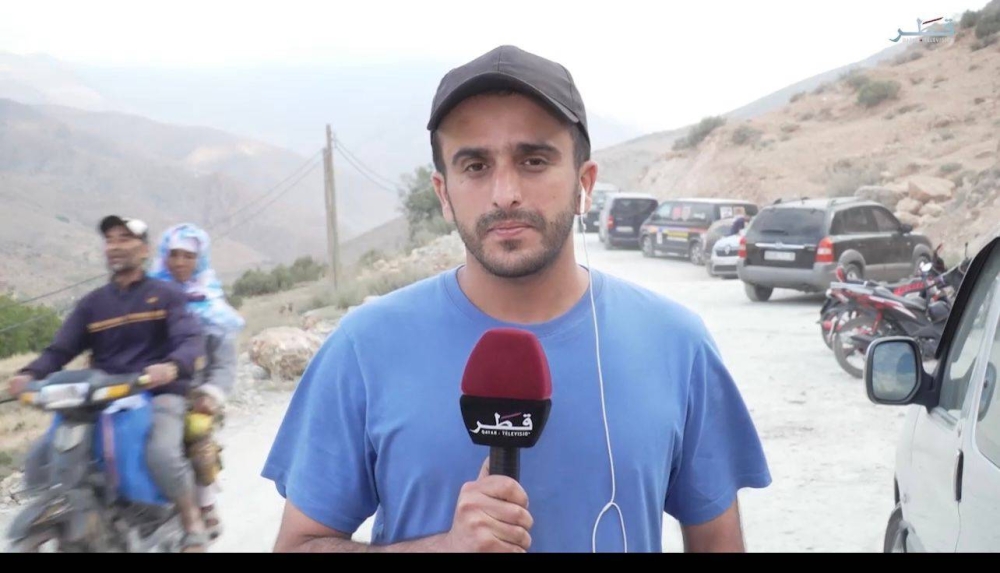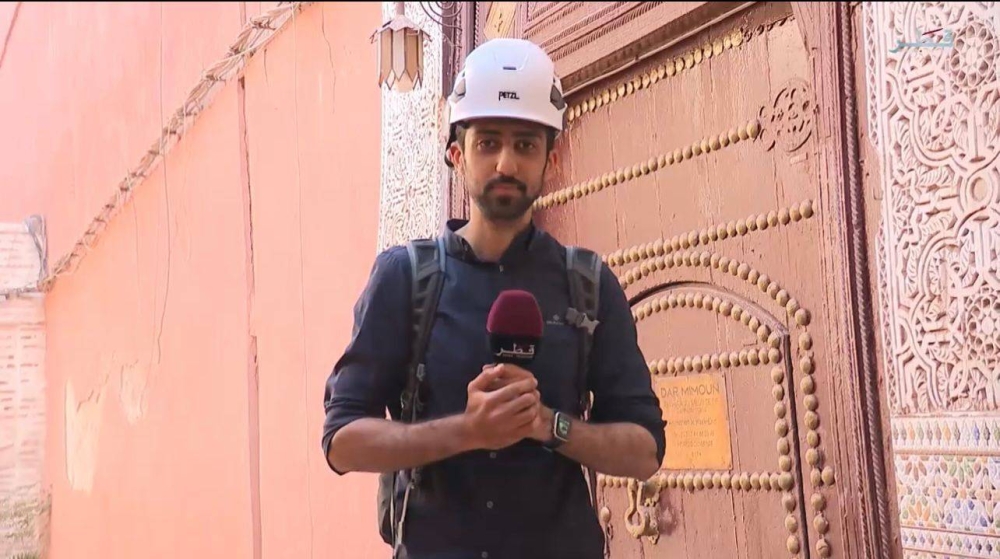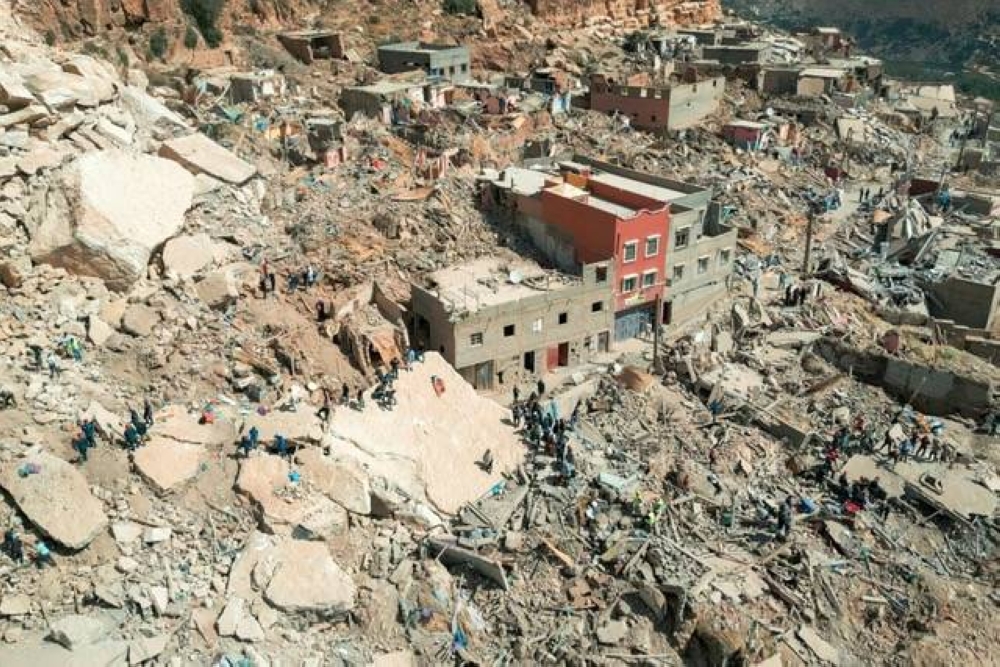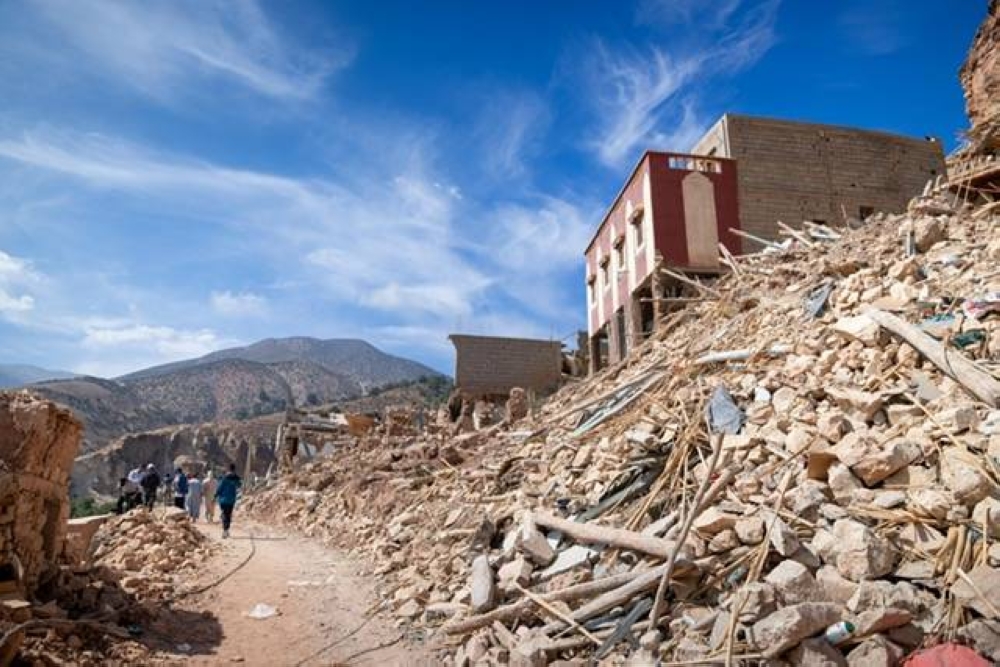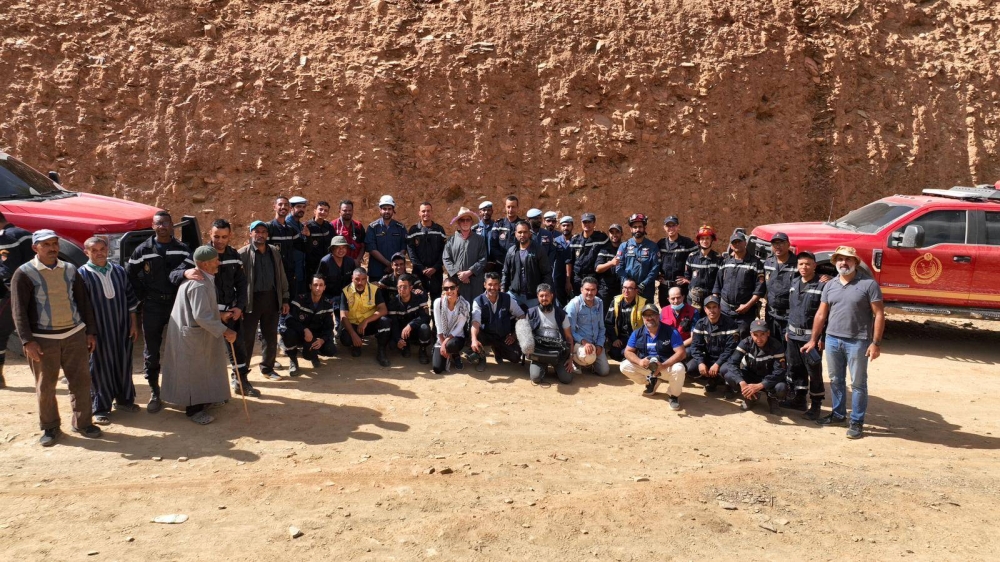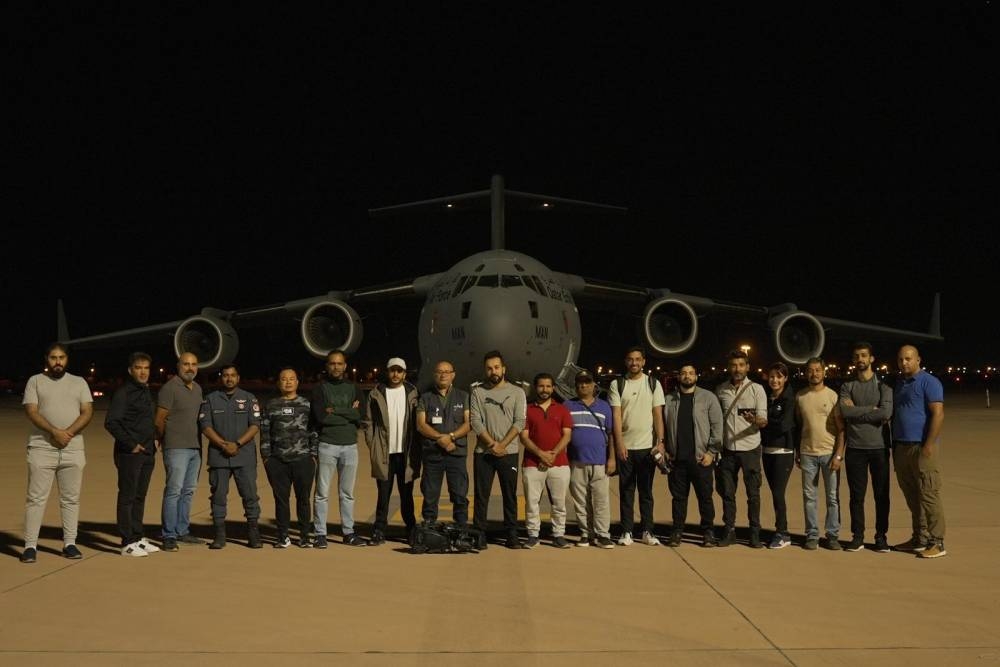The Qatar TV news centre provided comprehensive and exclusive coverage from the first moment of the Moroccan earthquake and the Derna floods in Libya.
The work team at Qatar TV interacted with the efforts of the Qatari International Search and Rescue Group heading to Morocco, which is considered the first rescue team to arrive at the earthquake site.
The research group was accompanied by a work team from Qatar TV, and despite the work team facing the difficulty of movement and communication, the rugged areas where the earthquake occurred, and the lack of much information, the news centre team was able to carry out its work and provide many news materials that included ten direct link reports, six follow-up reports, and four news reports.
The reports presented by Qatar TV included a report on the search and rescue team’s attempt to pull the imam of a mosque alive from under the rubble, in the Al Haouz province. A report on a land and air tour to search for stricken areas in the Amizmiz region and the Taroudant region, and a report on the Moroccan press’s reaction to the efforts of the Qatari rescue team.
Another report on progress in the work of search and rescue teams in the Al Haouz province, a report on Qatari efforts in Marrakesh, and a report on the attempt to rescue a man whose house collapsed on the Atlas Mountains in the “Tinfentine” region.
The news centre team also hosted seven guests from the Qatari search and rescue group, two Moroccan journalists, in addition to two local residents, and two from the Qatari Red Crescent.
The centre prepared internal reports, video and written news from various news agencies, with the aim of keeping pace with the event and highlighting the role of Qatar in rescuing, providing relief and assisting the stricken areas.
It also reported progress in the relief operation of the Qatari and international search and rescue group in Morocco after the devastating earthquake that struck several Moroccan cities a few days ago.
The report highlighted the rescue group’s efforts in blood donation operations at King Mohamed VI University Hospital. Its efforts to continue its serious work in coordination with international rescue teams and the Moroccan search and rescue team.
According to the report, the group is carrying out its relief work in several locations that were identified in coordination with the Moroccan authorities, namely: the Amital region in the Ahwaz province and rugged mountainous sites in the same region.
Coverage of Libya moment by moment
Within the framework of the distinguished media coverage provided by Qatar TV, the role of field media presence in conveying the true picture of the situation and the impact of disasters on the affected areas is highlighted. The news centre followed the relief operations in Libya from the first moment, and the its team interacted with the Qatari air bridge to transport aid to the brotherly country.
The television broadcast news and reports about the disaster from the newsroom, relying on agencies and on pictures filmed by Qatar TV, especially related to sending aid, via the Qatari air bridge, whether from Doha or from Benghazi airport. A direct link was also made with the Qatar TV delegate to Libya.
Media field presence is a means of monitoring progress on the ground in real time, as it allows viewers to remain constantly informed about changes in the situation and the government and relief response. This encourages providing support and contributing to humanitarian efforts to mitigate the impact of disasters.
On the other hand, the field media presence of Qatar TV plays a vital role in the responsible authorities’ contribution to providing urgent and sufficient assistance. Conveying a clear picture increases officials' action quickly and enables them to take the necessary measures to address disaster-related challenges.
Thus, Qatar TV plays an effective role in highlighting the importance of preparing for and responding to disasters and encouraging active participation in humanitarian efforts to contribute to providing aid and support to affected areas.
Qatar TV’s response to cover humanitarian events and the urgent response comes from the role played by the media and media channels in covering news about crises and supporting relief efforts.
As they contribute to directing the public’s attention to solidarity and unity with those affected by humanitarian crises and natural disasters. This contributes to raising public awareness and encourages interaction and donations to support victims and those affected, as they contribute to important global events, be it in the earthquake in Morocco or the Derna Hurricane in Libya equally.
Qatar TV played a prominent role in covering events in Morocco and Libya from a humanitarian and media perspective. On the humanitarian side, it provided many special media reports to follow up on rescue operations and relief efforts and gave voice to the testimonies of survivors and the importance of concerted humanitarian efforts in such difficult moments.
On the media side, Qatar TV provided dedicated news coverage and in-depth reports on the causes and effects of the disasters. This coverage contributed to spreading news about the importance of raising awareness of earthquake risks and the necessity of preparing to confront them.
The media content broadcast by Qatar TV also contributed to identifying urgent and necessary needs and supporting coordination of efforts between concerned authorities and humanitarian organisations.
